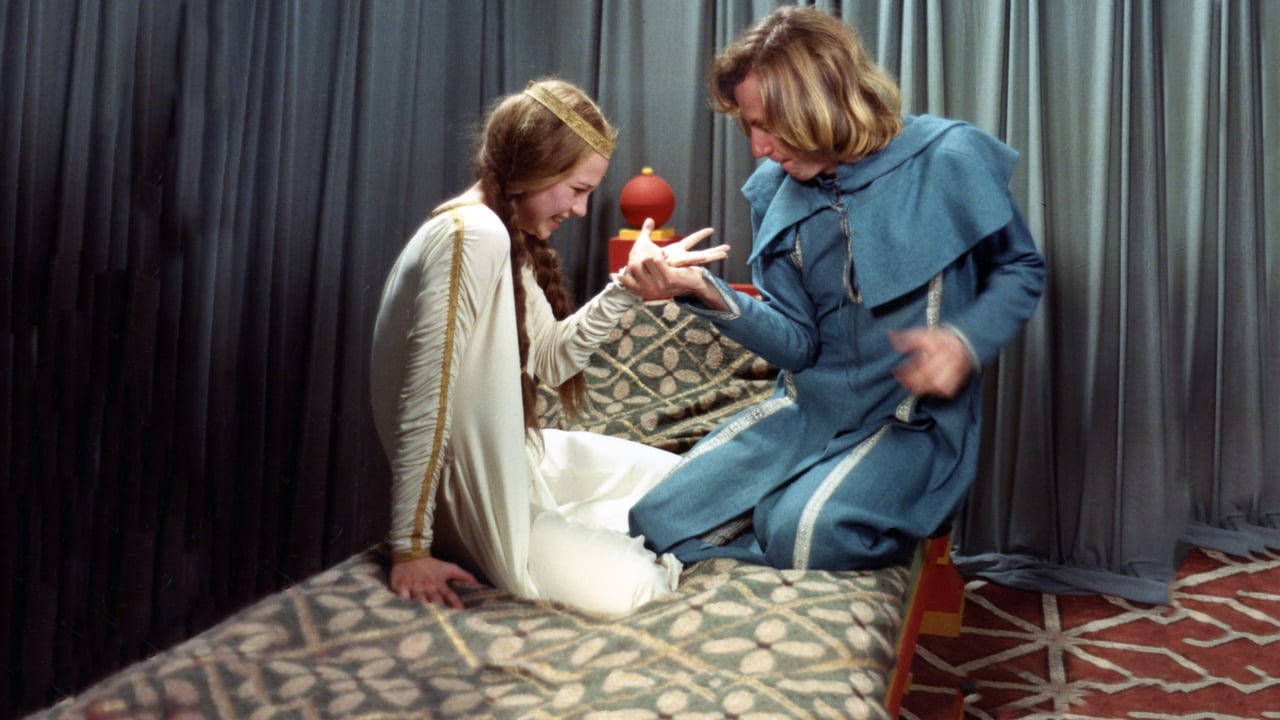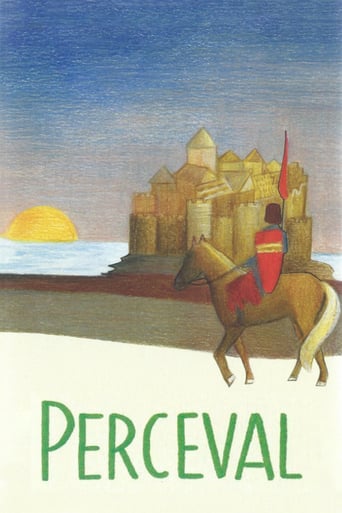



Good start, but then it gets ruined
Am I Missing Something?
A Major Disappointment
Although it has its amusing moments, in eneral the plot does not convince.
View MoreI like the majority of Eric Rohmer's individual and thoughtful low- budget movies (The only one I have yet to watch being SIGN OF LEO)but PERCEVAL lacks any of the usual charm and engagingly endless chatter. It leaves me utterly cold I'm afraid. It's....well actually it's pretty awful to be frank! Some of the acting, despite the constraints of the stylised elements (intrusive madrigals, forced rhyming and so forth) is good but it's a 2+ hours journey through a cardboard landscape to absolutely nowhere. One sees the credits roll and cannot help asking "is that it?" Rohmer's strength was always to create engaging contemporary love triangles in which much amorous youthful angst was discussed at length in rambling but rather mesmerising dialogue , usually by at least one very attractive young actress. Sometimes the stories ended abruptly or just fizzled out to nothing but in all cases there was an element of reality in that. Rohmer's costume pieces are all far less successful than the contemporary fables. PERCEVAL is the nadir. Everyone is allowed a dud. This is the great Rohmer's.Thats a far better record than most directors.
View MoreThis is the movie about the 12th Cenutyr that I've felt is the closest in spirit with what has been written about that time by the people themselves. Far from the ridiculous Hollywood accounts of Robin Hood and Excalibur, this movie is nothing more (and nothing less!) than a filmed chanson de geste. A troop of actors/singers portray the Chrétien de Troyes poem. Half the story is told by speaking, the other half singing. To be able to stick to the text, the characters often talk about themselves in the third person: it is effective in distancing the minstrels from the characters they impersonate. I pity those who see it but can't speak French, as Chrétien's prose has no equal, and the English translation is much more trivial than the other-worldly formulations of the author, faithfully rendered in the film...I'd advise greatly to read Perceval before watching the movie. Only then can one see how faithful to the spirit of the author Rohmer has managed to be. The original poem already takes place in some sort of magical, fantastic land and time, where everything is made of gold and velvet, and where not everything has to make sense. The Middle Ages literature tradition is very, very big on symbolism, and therefore mustn't be taken too literally. That's what Rohmer does here: castles and trees are symbols.The last aspect I shall mention is the resemblance between the movie and medieval paintings. Watching he movie, you often feel like watching an animated medieval fresco. Colors, clothing, positions, everything is taken directly from those depictions of medieval life. The scene of the Passion is made of everything good in that movie: very good music, amazing costumes and colors, symbolism, fresco-like positions... This movie is a masterpiece.
View MoreLet me start off by saying most folk I know are going to hate this film. I'll go one further: most human beings will hate this film. Rohmer has taken the Parsifilian myth and in translating it for the screen has created a hybrid form of storytelling combing the artifice and conventions of the world of theatre with the continuity we've grown accustomed to in the world of cinema. For some freaks (like yours truly) the wedding of these two formats works in an almost otherworldly manner making it quite unlike any film one is likely to see. Although combining elements of several of the Parsifal legends, Rohmer's retelling seems more centered on Chrétien de Troyes story than von Eisenbach's epic, endless poem.Visually here, at least Rohmer remains in the world of theatre: the sets are often painted flats, or small scale models that suggest or are more representational of the tale's locations than they are visual recreations typically found in film. There are trees constructed of metal, and myriad other odd touches to the set, all of which seems to be on an enormous stylized turntable or disc that revolves as the story progresses. The film is often narrated by a group of madrigal singers who, with their ancient instruments, wander in and out of the picture (and the story) adding commentary and observation serving a function in the manner of a Greek chorus. The effect is charming adding a further medieval, church mystery quality unifying the disparate elements of Rohmer has chosen for his storytelling. Conversely, it is also one of the elements that will annoy the hell out of many viewers.Rohmer's telling of the tale is primarily centered with the young Perceval's fascination with the world of knights and his desire to enter their world chivalrous universe. In the title role Fabrice Luchini portrays the young novice with a typically cool French sense of detachment, and arrogance yet somehow manages to balance it all with humility and honor. Fearlessly he passes through all of his trials and in the process shows that arrogance is not always wed with pride; when one's right and aware of his skill and abilities, he needn't be boastful. It's a fascinating portrayal.Interestingly, and more honestly than most Arthurian films Rohmer suggests more of the turmoil, weakness and near dissolution of Arthur's court than its glory. The young knight's stint at the castle, his integrity and eye for honesty wins the day earning him glory.Rohmer's pushing of the tale to include Sir Gawain's story moves naturally adding a deeper level to this Arthurian tale, as well as reminding us of the complexity, intertwining, and timelessness of all of these legends.Even those who may not like will not argue that visually Rohmer has created a world that is often breathtakingly beautiful. Indeed, many of the shots feel as though they'd dropped to us from glorious tapestry hanging from a damp castle wall.
View MoreEric Rohmer is a wonderful cineast and proves here to be a wonderful raconteur of fables too !Certainly Rohmer has his own remarkable way to tell the saga of Perceval, the knight who is here not so much naive but rather ignorant. This knight starts out as a twin brother of that other ignoramus: Siegfried, immortalized by Richard Wagner.What a stupendous crude, rude and totally dimwit idiot that one is and remains !! Not Perceval: he learns, grows ... all be it the hard way... And shines !!A truly unique film, I have not seen anything like it; combining so many different art forms in one, and excelling in all. Plus performances by marvelous actors (don't miss Dombasle in a small supporting role !!), guided by one of the truly gifted directors of the XXth Century.PS: Rohmer never used silly soundtrack-support, which has been in vogue thanks to the crushing influence of Hollywood. Here though he compensates by giving us a medieval ... musical !!Thank you very much, cher Maitre.
View More